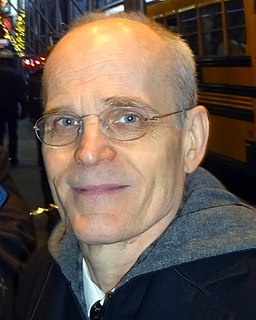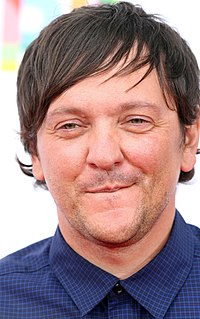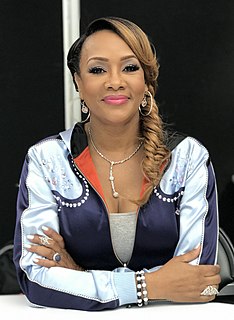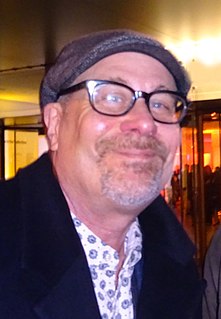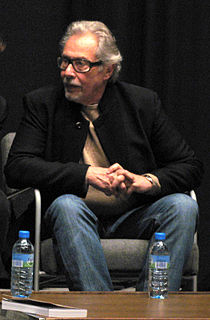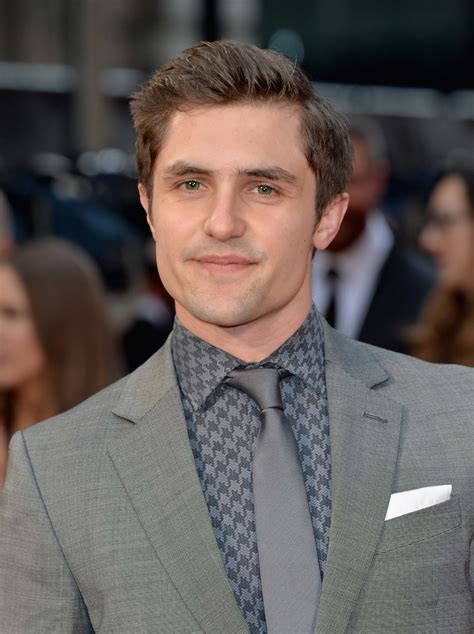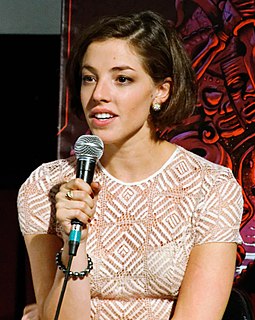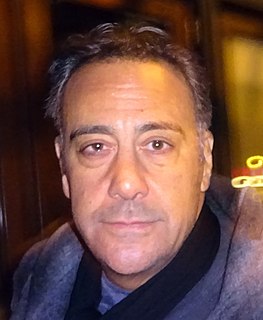A Quote by Zeljko Ivanek
What I always loved about theater is that that's an experience that a company of actors just sinks itself into for weeks, and you really get to work on the material, and by the time you're in front of an audience, you really own it.
Related Quotes
Once I got into high school, any time I had to do a talk or a speech, I just loved being up in front of an audience, it was always a character. And then I discovered that an impersonation of the teacher was a really, really good way to get a laugh, and it would also get you good marks, because the teachers were always bored and loved to be the "teacher-parody." So that became my little trick at school, and I became known for doing that.
Chicago theater vs. New York theater. There's just nothing to say about it really. If you've seen Chicago theater, you know that the work is true to what is there on the page. It's not trying to present itself with some sort of flashy, concept-based thing. It's about the work, and it's about the acting you're about to watch. So acting-based theater feels like it was born there to me.
Theater is the foundation of how I live my life, actually. My father was a playwright, so I was around it all the time and loved to talk shop with him, just loved it. And basically everything that I hold to be good and true and worthy, I learned in the theater. So not even just about the work, but just about life. Discipline, problem solving, creativity, how to get along with people.
I just always liked the company. The people who hung around her were amazing storytellers, whether it was actors or crew. They were just exciting people. And I knew that they were different when I would go see a friend or stay at someone else's house. It just wasn't as cool. So I always loved the theater, and that's where I started: at a theater up in Canada.
I think casting is really important. Finding the right sensibility for the right part is an art in itself. If you're off there, you make it harder on yourself as a director. And it's fun to work that out with the actors. I don't think there's any magic to directing actors. It's very instinctual. Working with actors is really one of my favorite creative moments of the whole process, and the most fun, because it's collaborative. I spend a lot of time rehearsing. I'm very rehearsal-oriented, probably because I have some background in theater. I like knowing what will work beforehand.
The nice thing about live performance is that I've never, ever been let down. Partly I'm lucky that my audience self-selects itself. Generally they know what they're in for, and generally we all just like each other and get along. But I always find one or two or a dozen really interesting people in the audience who make the show different. And that's one of the things I really like about performing.
Cinema and theater - it's apples and oranges. You can't really beat movies. Yeah, when you're on an Oliver Stone set everybody brings their A game. Everybody brings their A game, from the top to the bottom and in between. In terms of theater you know there is no way to really duplicate that rush you get when you take an audience that is live and right there in front of you through the journey of a great play and you go through these emotions so that they can experience them without having to go through them themselves.
I think I'm better wired for television. I love variety as far as a project. I'm easily bored and the schedule of a television show, it just keeps you going. I love theater and I think doing a sitcom in front of a live audience is the closest you can get to theater, and it's really the best mix of like standup and theater, is really a sitcom. I started as a standup and I still continue to do that as well, so I think I'm just a TV guy and happy for it. I think my movie career is kind of like my social life, I'm picky and not in demand. So it perhaps is working out.
I always tell that to young people - go to college, do theater, work with an audience. Don't try to learn how to act in front of millions and millions of people. Don't make that your first ambition, to be on a sitcom or get into the movies. Learn who you are as an actor, and the best way to do that is to do it in front of an audience.
